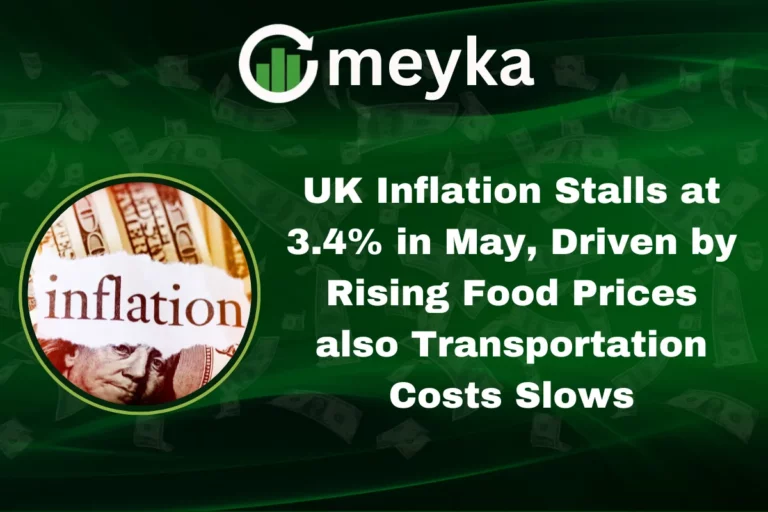Alibaba Shares Surge as CEO Announces Major AI Investment Plans
We saw a big shift in market sentiment today: Alibaba shares jumped sharply after the company’s CEO announced a major boost in AI investment. The stock gains reflect fresh confidence that Alibaba aims to become a powerhouse in artificial intelligence. This is not just hype. Alibaba revealed plans to expand data centers, launch new AI models, and increase global infrastructure investments. All this is tied to its vision of making AI a core business pillar.
We will guide you through the announcement, the market reaction, why Alibaba is placing big bets on AI, the risks it faces, and what’s ahead for its stock and business.
Background: Alibaba’s Place in the Tech World
Alibaba is one of China’s leading tech giants. It runs e-commerce platforms like Taobao and Tmall, handles digital payments (through affiliates), operates cloud services, and runs logistics networks. Its success over the past decade has depended on expanding digital commerce across China and abroad.
However, Alibaba also faced headwinds. Chinese regulators have tightened oversight of big tech. Overseas competition is intense (from Amazon, Microsoft, Google). To stay relevant, Alibaba needs new engines for growth. AI is the obvious bet. Under its “1+6+N” structure (one central hub + six business units + many ecosystem partners), Alibaba has been pushing each unit to be more independent and innovative.
Eddie Wu has been CEO since September 2023. He has emphasized the cloud and AI direction for Alibaba.
The CEO’s AI Investment Announcement
At its annual developer conference, Alibaba disclosed bold plans:
- The company will open new data centers in France, the Netherlands, and Brazil, expanding its global footprint.
- It will increase investments beyond its earlier commitment of ¥380 billion (~USD 53 billion) over three years.
- Alibaba unveiled its new major AI model, Qwen3-Max, with over 1 trillion parameters. It is positioned to perform in code generation and autonomous agent tasks.
- It also showed Qwen3-Omni, a multimodal AI system for applications like virtual reality, smart glasses, and intelligent vehicle cockpits.
- Alibaba entered into or expanded its collaboration with Nvidia in areas such as model training, simulation, and AI infrastructure.
The message from CEO Wu: the pace of AI development worldwide is faster than we expected, and demand for infrastructure is huge. Alibaba must scale rapidly to stay competitive.
He also predicted that global AI investment may approach USD 4 trillion over the next five years.
Market Reaction & Share Price Surge
The market’s reaction was swift and strong. In Hong Kong, Alibaba shares rose nearly 9%, reaching the highest levels seen in almost four years. In premarket U.S. trading, Alibaba’s stock also jumped following the announcement. Notably, Cathie Wood’s ARK funds made fresh purchases of Alibaba stock just ahead of the news, adding fuel to investor interest.
Analysts viewed these moves as validation that Alibaba is serious about AI. Some raised target prices, others flagged the risks ahead (which we cover next). Overall, Alibaba’s share rebound is part of a broader surge in Chinese tech names. The Hang Seng Tech Index is outperforming many global benchmarks this year.
Why AI Matters for Alibaba
Why is Alibaba going all‐in on AI? Here are the main reasons:
- Cloud & infrastructure growth
Alibaba Cloud is a major business. Using AI at the core helps it compete with AWS, Microsoft Azure, and Google Cloud. AI workloads, and the servers, chips, and data centers needed, are high-margin. - Logistics & supply chain optimization
AI can predict demand, optimize routes, manage warehouses, reduce waste, and speed delivery. Alibaba’s shipping network (Cainiao and others) can benefit greatly. - New offerings & verticals
With models like Qwen3-Max and Qwen3-Omni, Alibaba can expand into new directions: virtual reality, AI assistants, autonomous agents, robotics, and more. - Global expansion & infrastructure edge
By building data centers abroad and scaling AI tools, Alibaba can serve global markets better and reduce latency.
In short, AI is not just a side project; it is the engine Alibaba hopes will power its next decade of growth.
Broader Industry Context
Alibaba is not alone in pushing AI hard. Globally, top tech firms are racing to dominate:
- In China, rivals like Tencent and Baidu are also investing heavily in large language models and cloud infrastructure.
- In the U.S., companies such as OpenAI, Microsoft, and Google continue to raise the bar in AI models, hardware, and services.
- Many governments are pushing AI development as part of national strategies.
- The global AI investment environment is heating up: capital is flowing to startups, chip makers, and infrastructure firms alike.
Alibaba’s aggressive move places it more directly in this global competition. Its success depends on not just model innovation, but hardware, data, regulation, and partnerships.
Risks & Challenges
We should not ignore the risks. Alibaba faces several challenges:
Regulatory risk
China’s tech sector has seen strict scrutiny. New rules or geopolitical pressures could hamper parts of Alibaba’s strategy.
Execution risk
Building advanced AI models and data infrastructure is expensive, complex, and time-consuming. Delays or missteps could hurt returns.
Hardware & chip access
Chinese firms have restrictions in accessing top-tier AI chips (like those from Nvidia) due to export controls. Alibaba must find workarounds or invest in domestic chip development.
Competition & innovation pace
Rivals might outpace Alibaba in certain subfields. The AI arms race is brutal, today’s lead may vanish quickly.
Financial strain
Huge capital commitment means opportunity cost. If AI returns are delayed or weak, shareholders may get impatient.
We from outside, watching Alibaba, must be cautious and realistic. Bold bets carry both big rewards and big risks.
Future Outlook
What might come next?
- Revenue growth & profitability
Over time, AI-powered products and cloud services could contribute significantly to Alibaba’s top line and margins. - Global expansion
With new data centers abroad, Alibaba may be able to better serve regions in Europe, Latin America, Southeast Asia, and beyond. - New partnerships & M&A
To strengthen tech, Alibaba might acquire or partner with AI startups, chip firms, or research labs. - Stock performance
If execution is solid, we might see sustained upward momentum. Analysts may raise targets, and more institutional investors might enter. - Catalysts
Breakthrough results from Qwen3-Max or related models, faster adoption by businesses, or expansion into new verticals may act as triggers for renewed investor interest.
Conclusion
Alibaba’s latest move signals a clear turning point. The company has matched words with action, embedding AI deeply into its core strategy. The sharp jump in Alibaba shares reflects optimism that the digital giant may reinvent itself once more.
Of course, risks are real. The path ahead is tough. But if Alibaba can deliver on its vision of AI, it could reset expectations for China’s tech leaders in the global arena.
FAQS:
Alibaba’s stock fell due to strict government rules on Chinese tech firms, slower growth in its e-commerce business, and global economic concerns, which made investors nervous about future profits.
The major investor in Alibaba is SoftBank, a Japanese investment group. They hold a large portion of shares and have influenced Alibaba’s growth and strategic decisions over the years.
Alibaba’s stock is rising after the CEO announced huge investments in artificial intelligence, new data centers, and advanced AI models, showing investors the company is focusing on future growth.
Disclaimer:
This content is for informational purposes only and is not financial advice. Always conduct your research.






